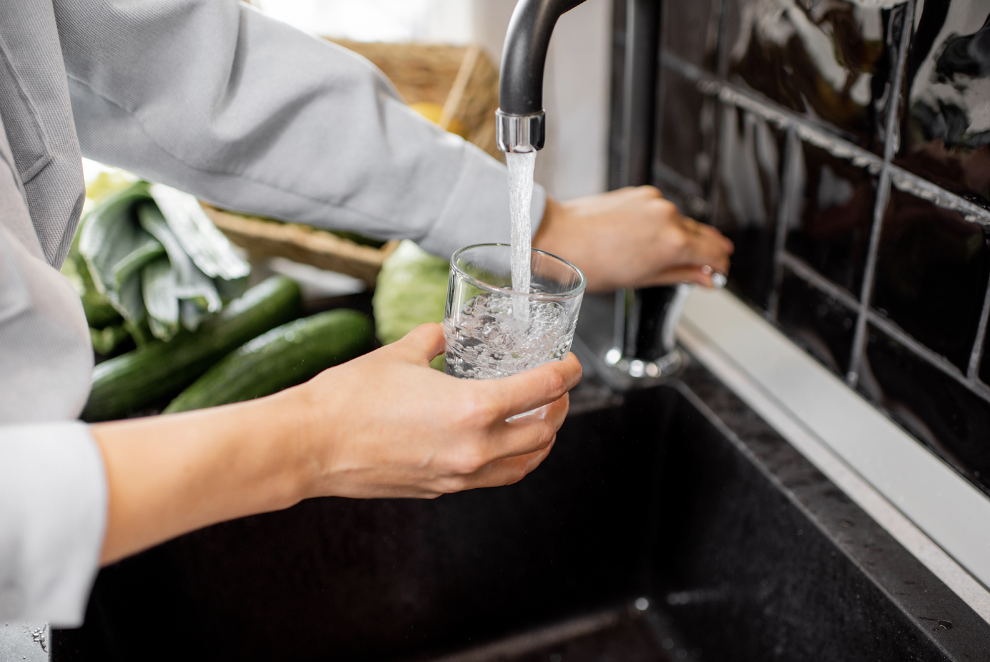Why Is It Important to Test Water Quality?

Water is essential for human survival, and ensuring that the quality of our water is safe and secure is critical. This is where water quality testing comes in, an important process that involves analyzing drinking water samples to determine the presence of harmful substances, bacteria, and chemicals.
The fundamental purpose of drinking water quality testing is to identify whether there are any contaminants present in the water and to determine whether drinking water is safe for human consumption. Contact Friendly Plumber, Heating and Air today to learn more or to schedule a water quality test in Salt Lake City, UT.
What is a Water Quality Test?
A water quality test is an examination of water characteristics to evaluate water safety for human consumption and other purposes. Testing water quality aims to identify any harmful substances present in your water and their concentration levels, as well as the overall risk to your health and the longevity of your home’s plumbing equipment.
A water quality analysis typically involves testing the drinking water for various potential contaminants, including:
- Dissolved solids
- Bacteria
- Harmful chemicals
- Minerals
- Metals
- Other pollutants
How is Water Quality Testing Performed?
Performing water testing involves several steps, including sample collection, analysis, and interpretation of results.
The first step in testing water quality is sample collection. Tap water samples are usually collected from various water supply sources in the home, including faucets and private well supplies. To ensure accurate results, samples must be collected in clean and sterile containers following standard procedures and shipped for laboratory testing within a specified timeframe.
Once the drinking water samples are received at the laboratory, water quality analysis can begin. The laboratory technicians analyze the tap water samples to detect any contaminants in your water supply using a range of tests. Physical tests such as color, turbidity, and odor are carried out first to identify any visible abnormalities that might be present.
Then, chemical tests are conducted to measure the water’s pH, temperature, chlorine levels, dissolved oxygen levels, total dissolved solids, and levels of various common water contaminants such as metals, nitrates, and phosphates.
Microbiological laboratory tests are also carried out to detect the presence of bacterial contamination, viruses, and tiny microorganisms in the drinking water. These water quality tests typically involve culturing the tap water sample on a nutrient-rich source and observing the growth of bacteria colonies over time. Advanced techniques such as DNA testing can also be used to detect specific strains of bacteria and viruses in drinking water.
After the laboratory water testing analysis is completed, the results are interpreted, and a report is generated. The report includes information about various drinking water quality parameters and the presence/absence of water contamination. Depending on the results, the report may recommend remedial actions to improve drinking water quality.
Additionally, in-home water quality tests are available to provide a quick assessment of your water’s hardness and chlorine levels without the need for laboratory analysis. At Friendly Plumber, Heating and Air, our trucks are stocked with in-home tests to provide you with results in around 10 minutes. Contact us today to learn more about your laboratory water quality and in-home water quality testing options.
Why is Water Quality Testing Important?
Water quality testing is essential for several reasons. Firstly, it helps to determine whether the water is safe for human consumption, as poor water quality can indicate significant problems.
Secondly, it helps to identify the presence of contaminants in the water, as certain contaminants may pose a higher risk of serious health issues.
Lastly, it helps to identify the need for water treatment processes to improve the quality of your drinking water.
What Does Water Quality Testing Show?
Water quality testing results can show a wide range of information about the home’s drinking water quality. For instance, it can reveal the presence of water contamination from bacteria, including E. coli and coliforms, that can cause problems with a person’s health, such as digestive issues and pneumonia.
It can also detect the presence of nitrates, lead, chlorine, pesticides from agricultural pollution, and heavy metals that are harmful to human health. In addition, it can also reveal the hardness of the water, which can indicate the presence of minerals such as iron, manganese, and calcium that can cause staining, odors, odd taste, and other problems.
What to Do If Water Testing Comes Back with Negative Results?
If the results of the water quality test come back with negative results, it is important to take quick and appropriate action to ensure that the water is safe for consumption. There are several steps you can take, including:
- Refrain from drinking the water until further notice.
- Identify the source of the problem, which could be due to the water source, pipes, or other factors.
- Take corrective measures such as installing a water filtration system to remove the contaminants.
- Regularly monitor the water quality to ensure its safety.
- Contact a professional water testing company or plumber to reassess the water quality.
Schedule Water Testing Today
At Friendly Plumber, Heating & Air, we understand the importance of water quality testing, and we provide comprehensive water testing services to help ensure that your drinking water is safe, clean, and pure. We use advanced testing methods and equipment to identify any contaminants present in your water and determine the best course of action to remove them.
Our team of skilled technicians in Salt Lake City, UT is available to answer any questions you may have and provide you with the support you need to keep your water safe. Contact us today to schedule a water quality testing appointment and ensure the safety of your drinking water supply.


